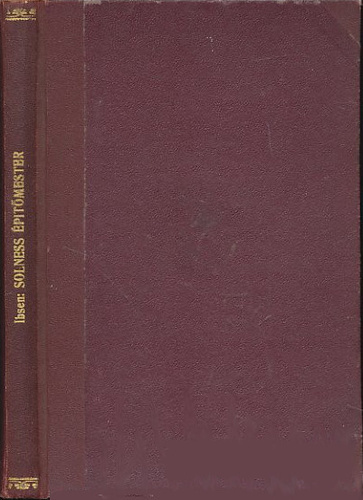What do you think?
Rate this book


124 pages, Unknown Binding
First published January 1, 1892

SOLNESS (in a low voice, with inward emotion): Listen to this carefully, Hilde: All that I have been able to achieve—everything I've built and created—all the beauty, security, comfort—magnificence, too, if you like—(Clenches his hands) Oh, it's too terrible to think of—!There is a direct line connecting Solness to Jay Gatsby in F Scott Fitzgerald's novel. In both cases, a successful career turns out to have been illusory, even haunted.